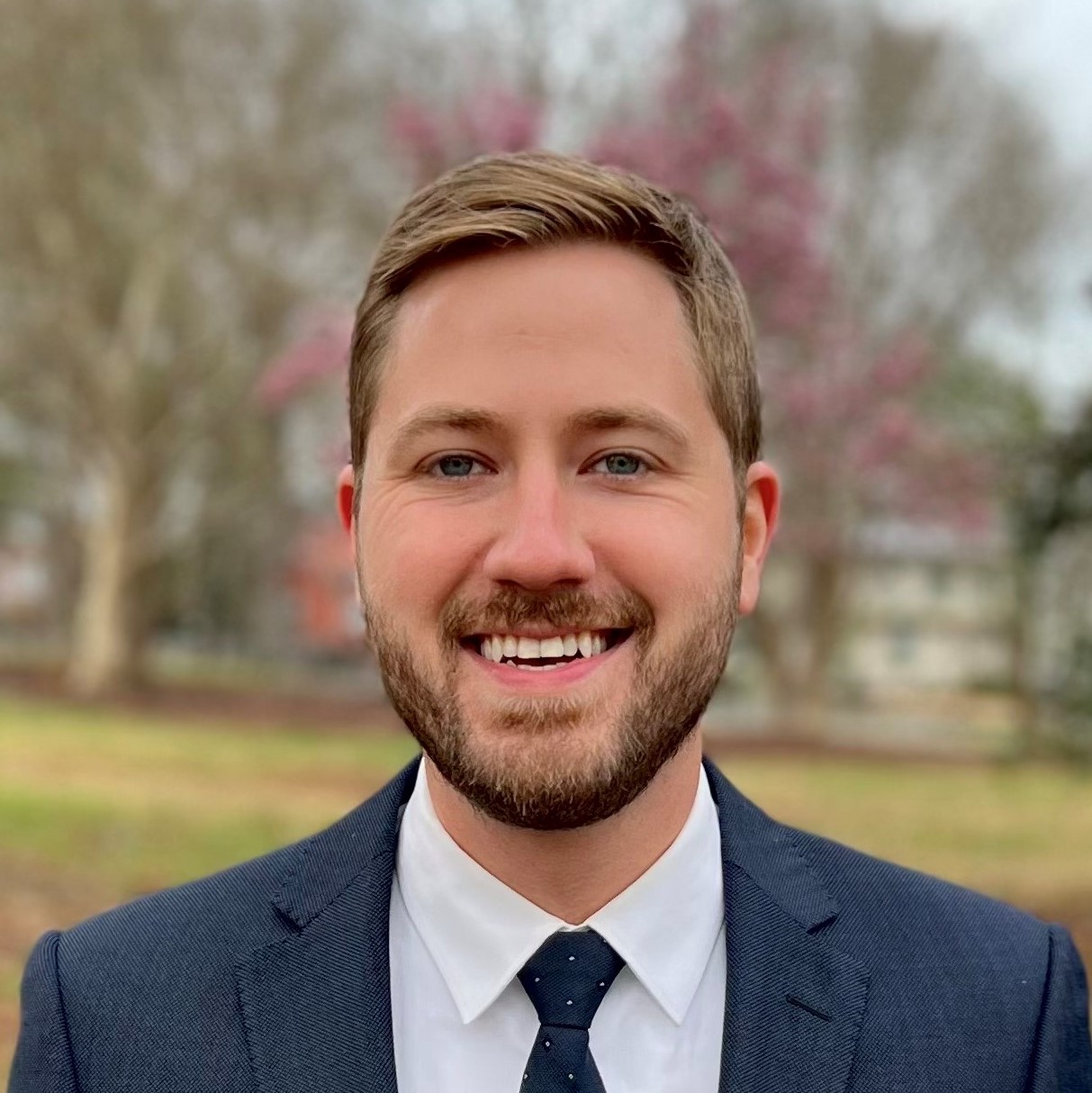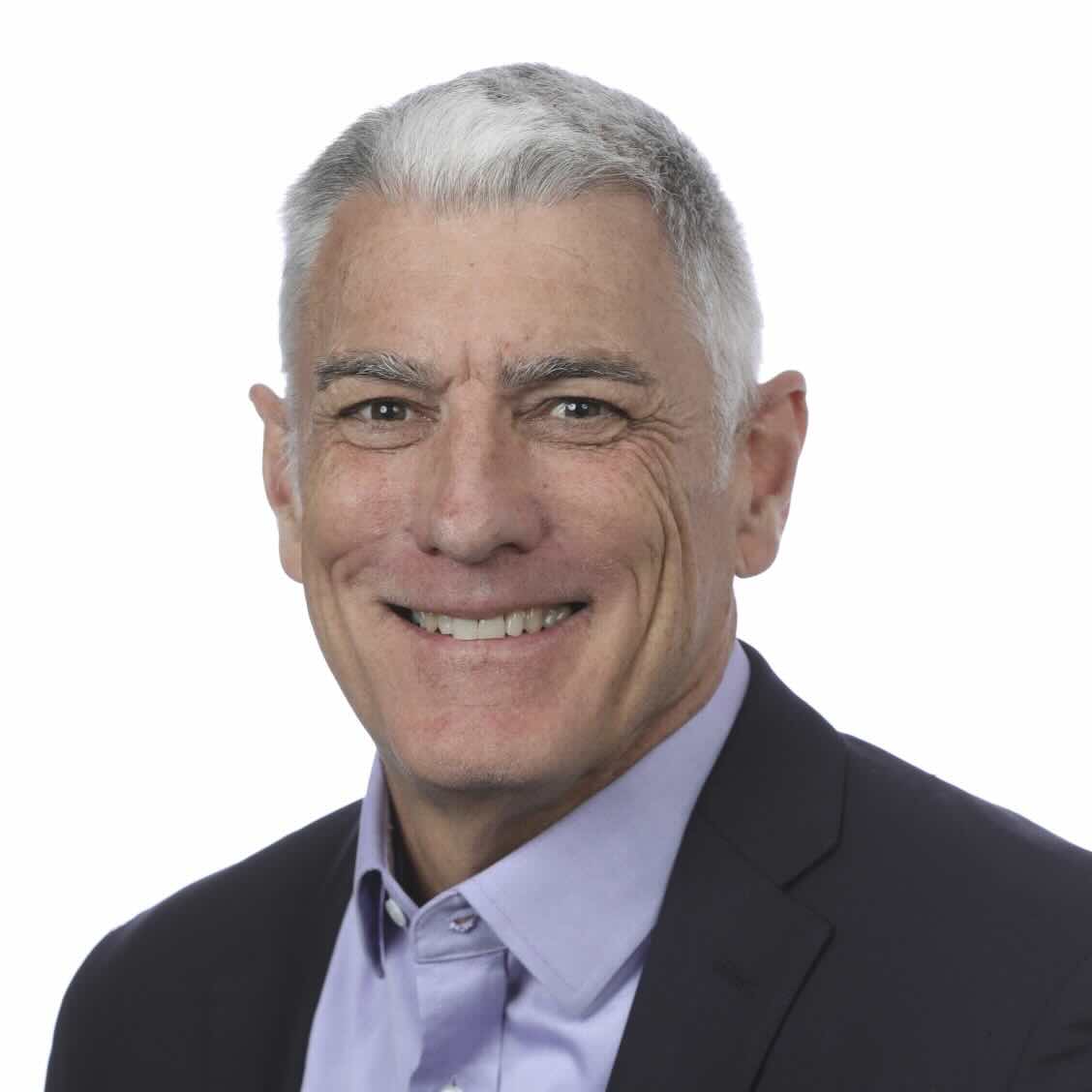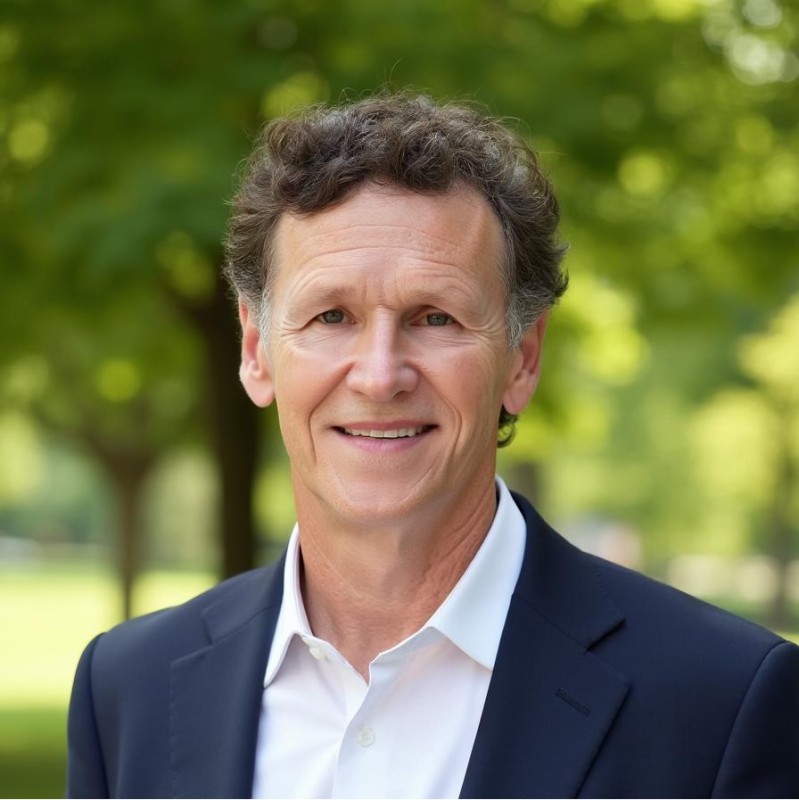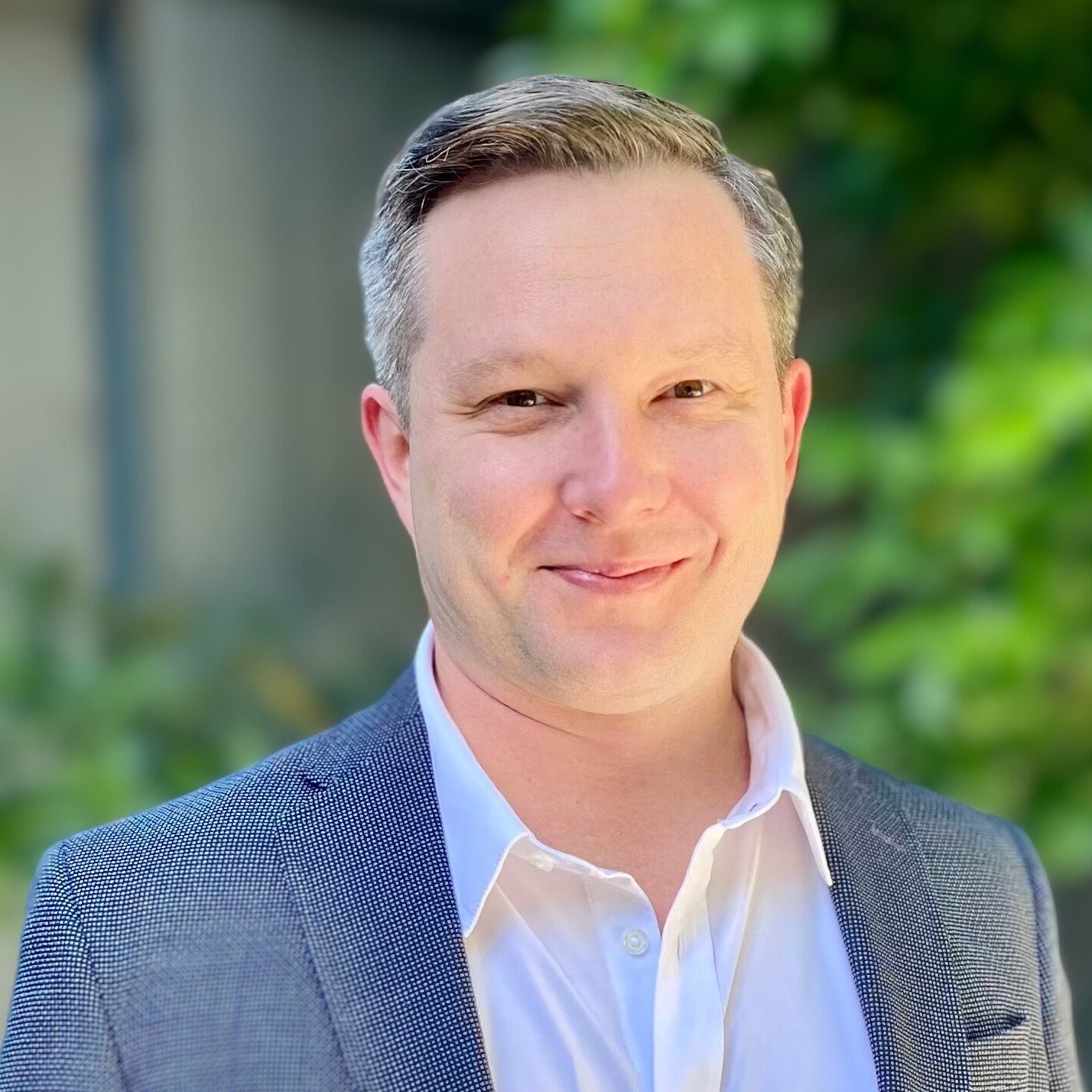2026 Duke University Energy Conference:
Save the date!
November 11, 2026
The Fuqua School of Business

Conference Format
The 17th annual Duke University Energy Conference will leverage Duke’s reputation as an academic institution at the center of the global energy conversation to address the energy transition.
Recent years have demonstrated dynamic change and innovation across all industries, and the energy sector has been no exception. The 2025 Duke University Energy Conference will bring together leaders and industry experts to explore, discuss, and debate how the evolution of the energy sector will shape key aspects of society including transportation, finance, and technology.
The Energy Conference draws over 400 attendees each year and features keynote speakers, panel discussions, networking opportunities, a company expo, and interactive sessions. This year’s theme will cover hot topics across the energy sector to explore opportunities to collaboratively address barriers to progress and inspire cross-disciplinary action to advance the energy transition.
2025 Conference Schedule
8:00 - 9:00 am: Check-in, Coffee, and Breakfast
Check in at the Hall of Flags outside of Geneen Auditorium before joining us in Kirby Reading Room for breakfast and Tim Johnson’s Watt to Know: Energy Warm-Up session. Breakfast will also be available in the Kirby Winter Garden for those unable to attend Watt to Know.
8:30 - 9:00 am: Watt to Know: Energy Warm-Up
Hear a concise, accessible overview from Dr. Tim Johnson of today’s energy landscape, key terminology, and major trends to set the stage for the rest of the conference while enjoying breakfast and coffee.
Located in Kirby Reading Room.
9:15 - 9:30 am: Opening Remarks
Located in Geneen Auditorium.
9:30 - 10:00 am: Keynote Conversation with Bobby Hollis, VP of Energy at Microsoft
Hear from Bobby Hollis, VP of Energy at Microsoft in a keynote conversation with Dalia Patino Echeverri, Associate Professor at the Duke Nicholas School of the Environment, where they will discuss how technology industry leaders are transforming the grid—exploring challenges and opportunities in interconnection, reliability, policy, and innovation to ensure a clean, affordable, and resilient energy future.
Located in Geneen Auditorium.
10:00 - 10:50 am: Friendly Debate - The AI Energy Dilemma: Scaling Intelligence in a Resource-Constrained World
Join Tyler Norris, James B. Duke Fellow and Cy McGeady, Head of Energy Policy at Equinix for a lively debate to explore how AI’s explosive growth is reshaping sustainability, grid infrastructure, and the ethics of energy use in the continued evolution of technology.
Located in Geneen Auditorium.
10:50 - 11:10 am: Break
Enjoy light refreshments in the Hall of Flags located outside of Geneen Auditorium.
11:10 am - 12:00 pm: Powering the Future: Building Grid Resiliency in North Carolina
This session brings together leading voices from industry, academia, and policy to discuss how investments, research, and advocacy following Hurricane Helene are working to shape a more resilient grid.
Located in Geneen Auditorium.
12:00 pm - 1:30 pm: Lunch and Company Expo
Enjoy lunch in the Kirby Winter Garden and network with companies across the energy and sustainability sectors, including:







1:30 - 1:45 pm: Afternoon Opening Remarks and Raffle
Make your way back from lunch and the company expo quickly to be eligible to win a raffle prize!
Located in Geneen Auditorium.
1:45 - 2:25 pm: Keynote Conversation with Rebecca Kujawa, former President and CEO of NextEra Energy Resources
Hear from Rebecca Kujawa, former President & CEO of NextEra Energy Resources, in a fireside chat with Megan Ferryman, MEM/MBA candidate at Duke University, as she explores the innovations, policy frameworks, and collaborative solutions needed to accelerate progress toward a resilient, reliable, and equitable energy future.
Located in Geneen Auditorium.
2:25 - 3:10 pm: The Future of Global Movement: Rethinking First and Last Mile Mobility
Join leaders from across the transportation sector for a forward-looking discussion on how innovation, electrification, and cross-sector collaboration are transforming long-haul, maritime, and aviation transport to decarbonize the hardest-to-abate sectors and redefine global mobility.
Located in Geneen Auditorium.
3:10 - 3:30 pm: Break
Enjoy light refreshments in the Hall of Flags located outside of Geneen Auditorium.
3:30 - 4:20 pm: The Capital Equation: Powering Tomorrow in a Rapidly Evolving Energy Landscape
Hear from leading energy finance experts as they discuss how investors are adapting strategies to meet surging electricity demand and how capital is being mobilized to build our collective energy future.
Located in Geneen Auditorium.
4:20 - 4:30 pm: Closing Remarks
Located in Geneen Auditorium.
4:30 - 5:30 pm: Networking Reception
Network with conference attendees and share your reflections from the day over light refreshments in the Kirby Winter Garden.
2025 Keynote Speakers
Bobby Hollis
Vice President of Energy, Microsoft

Bobby Hollis joined Microsoft in 2023 as VP of Energy responsible for leading Microsoft’s energy sourcing and carbon removal strategy globally as its AI infrastructure deployment accelerated. In this role, Bobby and his team works with utilities, suppliers, policy makers and industry leaders to procure energy and renewables to power Microsoft’s global data centers and AI infrastructure, achieve Microsoft’s renewable energy and carbon negative commitments and support the advancement of carbon-free electricity grid infrastructure.
Before his energy work in the technology sector, Bobby led renewable energy for Nevada’s largest utility, NV Energy, a Berkshire Hathaway utility, adopting customer-oriented approaches that radically changed renewables within the utility sector. His tenure included innovative customer projects with Apple and Nellis Air Force Base, as well as a state-wide SmartGrid deployment and major policy changes to retire all coal facilities and replace them with renewable generation. Early in his career, Bobby practiced corporate and regulatory law at Jenner & Block and Baker & Mackenzie, in Washington, DC, and Chicago, as well as leading legal support for Invenergy LLC, one of the largest renewable energy developers in the US.
Bobby holds a J.D. in Law from the University of Iowa College of Law and a Bachelor of Arts from the University of Florida.
Rebecca J. Kujawa
Former President and CEO of NextEra Energy Resources

Rebecca J. Kujawa is a nationally recognized energy leader with deep experience across the full spectrum of the U.S. power sector. Over the past two decades, she has helped shape some of the industry’s most important inflection points—leading transformational growth, advancing clean energy technologies, and building high-performing teams at scale. She is known for her strategic clarity, financial discipline, and ability to execute multibillion-dollar investment programs in complex, capital-intensive environments.
Most recently, Rebecca served as President and CEO of NextEra Energy Resources, the largest competitive energy provider in the U.S. and the world’s leader in renewables. She led a 7,400-person organization and oversaw $15–$20 billion in annual infrastructure investment. Under her leadership, the company expanded and diversified its development pipeline, deployed transformative digital technologies, and set new benchmarks for scale, speed, and operational excellence.
Previously, she was Chief Financial Officer of NextEra Energy, Inc. [NYSE: NEE], a $140 billion market capitalization energy company and one of the largest capital investors in the U.S. She led the financing of nearly $50 billion in growth initiatives and oversaw enterprise-wide IT and cybersecurity, including operational technology risk management.
A respected industry voice, Rebecca brings comprehensive experience across the energy ecosystem—from renewables development to nuclear operations to transmission systems—positioning her uniquely to address the complex interdependencies shaping the industry’s future. She is a sought-after speaker at major global energy forums, including COP28, CERAWeek, and the World Hydrogen Summit, and her insights have been featured in The Wall Street Journal, Financial Times, and Reuters. She has extensive governance experience, including serving as Chairperson of Nuclear Electric Insurance Limited (NEIL), the mutual insurance provider for the global nuclear industry, and as a Director of XPLR Infrastructure [NYSE: XIFR].
Rebecca is a Chartered Financial Analyst (CFA) charterholder and earned her bachelor’s degree with honors in public policy studies from Duke University.
Programming and Panel Discussions

Breakfast Session
Watt to Know: Energy Warm-Up with Dr. Tim Johnson
Kickstart your experience at the Energy Conference with an engaging overview of today’s energy landscape. This breakfast session will help you get up to speed on key terminology, hot topics, and the trends shaping the industry. Whether you’re new to the energy sector or just looking for a quick refresher, Watt to Know is the perfect way to warm up before the official kickoff of the conference.
Dr. Johnson is the Senior Associate Dean for Academics and Chair of Energy and Environment program at the Duke Nicholas School of the Environment. His teaching and research address interdisciplinary topics at the intersection of energy system planning, design of the built environment, and natural resource management.
Friendly Debate
The AI Energy Dilemma: Scaling Intelligence in a Resource-Constrained World
The role of AI in our society and economy is ascendent; across industries, there is seemingly boundless energy and enthusiasm for new applications of this powerful tool. At the same, governments and corporations are struggling to meet the real and expected power demands for data processing. In the sustainability space, many are questioning the fundamental value proposition of the role that AI will play in our society given the intensive environmental costs. This friendly debate will feature a thoughtful dialogue between an industry practitioner, an academic, and a leading energy journalist to explore questions around AI applications for sustainability, utility and grid infrastructure development to meet demand, and the ethics of energy use in the continued evolution of technology.
Scarlett Harrod
Head of Origination at Net Power

Tyler Norris
James B. Duke Fellow at Duke University’s Nicholas School of the Environment

Read Tyer Norris's Bio
Tyler H. Norris is a James B. Duke Fellow at Duke University’s Nicholas School of the Environment, where his PhD research focuses on bulk electric power systems. He was previously VP of Development at Cypress Creek Renewables, where he managed a multi-gigawatt project portfolio and hundreds of millions in capital investments.
Prior, he was Director at S&P Global Platts and Special Advisor for tech-to-market at the U.S. Department of Energy. He was invited to testify to the US House Energy & Commerce Committee in March 2025 based on his role as lead author of the Nicholas Institute study Rethinking Load Growth, and in 2024 he was invited by FERC to serve as an expert panelist at the Commission’s technical conference on generator interconnection reform.
He regularly advises government officials, NGOs, investors, and market participants, and his writing has appeared in The New York Times, Foreign Affairs, and elsewhere.
Cy McGeady
Head of Energy Policy at Equinix

Read Cy McGeady's Bio
Cy McGeady leads power sector policy work at Equinix and has worked in the electric-power sector for over a decade. Cy was previously a fellow at the Center for Strategic and International Studies in Washington, D.C. where he was a leading voice on electric-power sector economics and policy in a new era of demand growth.
He has worked in wide range of commercial roles in U.S. power markets and has consulted on project development, managed generation and load books assets in short-term markets, and originated long-term transactions. Cy holds a BA in economics from the University of Rochester and is pursuing an MA in liberal arts at St. John’s College.
Powering the Future: Building Grid Resiliency in North Carolina
From escalating climate threats to surging energy demand and evolving security risks, the challenges facing North Carolina’s power infrastructure are both complex and urgent. This session brings together leading voices from industry, academia, and policy to discuss challenges and explore solutions such as the deployment of microgrids to cover critical services, the modernization of aging transmission lines, and the integration of distributed energy resources. Panelists will discuss how investments, research, and policy following Hurricane Helene are already working to shape a more resilient grid.
Jeff Hughes
Climate Leader in Residence at the Nicholas Institute, former North Carolina Utilities Commissioner

Read Jeff Hughes's Bio
Jeff Hughes became a Duke Climate Leader in Residence in August of 2025. Hughes’ primary affiliations during his 18-month residency are with the Nicholas Institute and the Pratt School of Engineering, but he also will work across campus on other interdisciplinary initiatives. While at Duke, he will teach courses, work on curriculum development, and support students and faculty.
Prior to joining Duke, Hughes spent 6 years as a Commissioner with the North Carolina Utilities Commission. Mr. Hughes also spent nearly twenty years on the faculty of the University of North Carolina School Government where he was the Director of the UNC Environmental Finance Center. His professional experience includes economic regulation, consulting, academia, direct utility management, and international development.
Hughes has an undergraduate degree in engineering from Duke University with a focus on energy management and a master’s degree in environmental engineering from the University of North Carolina at Chapel Hill with a focus on water engineering and economics. He has served on numerous boards and committees during his career including the NARUC Committee on Water, the USEPA Environmental Finance Advisory Board, the NC Water Treatment Operator’s Certification Board, the Southeast Energy Efficiency Alliance, and the North Carolina GreenPower Board.
Mark McIntire
North Carolina Energy and Environmental Affairs Director at Duke Energy

Read Mark McIntire's Bio
Mark is Duke Energy’s North Carolina Energy and Environmental Affairs Director. In this role he represents Duke Energy on energy and environmental issues ranging from carbon reduction and offshore wind development to transportation electrification and nuclear power. He is accountable for Duke Energy’s engagement with environmental regulators, emergency management officials, and other elements of state government. Early in his time with Duke Energy Mark held several operational roles, including electrostatic precipitator engineer and strategic water engineer.
Immediately prior to joining Duke Energy, he spent seven years with GHD leading large infrastructure projects for USAID in the Middle East. He began his career with the North Carolina Department of Environmental Quality where he spent 10 years focused on water and wastewater permitting for large industrial facilities.
Mark represents Duke Energy on Governor Stein’s Energy Policy Task Force and serves on the boards of the Southeastern Wind Coalition and the Carolinas Air Pollution Control Association. He is a graduate of NC State’s College of Engineering, a licensed Professional Engineer, a member of the American Academy of Environmental Engineers, and a certified Carbon Reduction Manager.
Sushma Masemore
Deputy Secretary for Environment, North Carolina Department of Environmental Quality

Read Sushma Masemore's Bio
Sushma Masemore was named Deputy Secretary for Environment in May of 2021. She guides DEQ’s regulatory divisions through the complex issues facing North Carolina and brings more than 30 years of public and private sector experience to the role.
Masemore oversees the development and implementation of major policy initiatives for programs such as: permitting of discharges to surface waters; issuance of air emissions permits; grant programs for wastewater and drinking water projects; remediation of contaminated soil and groundwater, permitting of coastal development; and regulation of animal operations, mining operations, and energy development projects.
As the State Energy Director, Masemore led statewide initiatives related to energy and climate change, including the development of the NC Clean Energy Plan and Risk Assessment and Resilience Plan.
Masemore joined DEQ as a permit engineer and has managed teams of engineers and scientists through program design, standards development, and implementation phases. Her private sector experience includes building partnerships with technology developers, industry representatives, and government officials to collaborate on environmental solutions that made good business sense while protecting public health.
Masemore earned a B.S. in Chemical Engineering from University of Maryland Baltimore County, and is a licensed Professional Engineer in North Carolina.
Srijib Mukherjee
Senior R&D Staff Member at Oak Ridge National Laboratory

Read Srijib Mukherjee's Bio
Dr. Mukherjee comes with 35 years of research, engineering, academic and management experience in Power Systems Operations, Power Generation Engineering, Transmission Planning, Energy Markets, Electrical Grid Resiliency and Distributed Generation of Power Systems. Srijib has an MBA in Finance from Duke University, Ph.D. and MS in Electrical Engineering from the University of Miami and a B.E. (Bachelor of Engineering, Electrical Power Engineering) from The Manipal Institute of Technology.
He has a Joint Faculty, Professor appointment with the University of Tennessee’s and Oak Ridge National Laboratory’s Bredesen Center. Srijib’ s research and engineering interests are in the technologies surrounding autonomous cars, electric charging infrastructure and energy storage.
His experience spans 14 years with US electric utilities (CP&L/Duke Energy, Nevada Power/NV Energy, and FP&L/NextEra Energy), 13 years with various technical and management energy consulting firms (Quanta Technology/Quanta Services, Pike Electric and Mott MacDonald), 10 years as an Adjunct and Research Faculty member at The University of North Carolina, Charlotte and The University of Tennessee, Bredesen Center and 4 years with Government Agencies (NOAA and ORNL).
He has published over 30 peer reviewed, refereed research papers in various journals and conferences, 14 DOE Technical Reports at The Office of Science and Technical Information (OSTI) and has 2 patents and 1 invention disclosure under patent application. He is also a veteran Program Evaluator (PEV) for the Accreditation Board of Engineering Technology (ABET) and is an Alternate Board Member of the IEEE Committee on Engineering Accreditation Activities (IEEE CEAA). Additionally, he is licensed to practice engineering as a Professional Engineer (P.E.) in the States of NC, NV and CA and licensed to operate the US Grid as a NERC Certified System Operator. Srijib has mentored advised and chaired 10 Ph.D. and master’s student’s thesis committees in Energy Science and Power Systems research.
The Future of Global Movement: Rethinking First and Last Mile Mobility
Much of the public conversation around transportation electrification has focused on personal passenger EVs, yet the majority of fuel use and carbon emissions comes from moving people and goods at scale. From long-haul trucking and maritime shipping to the rise of aviation for both passengers and cargo, the innovation, decarbonization, and electrification of these hard-to-abate sectors is critical to global progress. This panel will explore how leaders across industries are tackling these challenges and how cross-sector collaboration can accelerate the transition.
Fabio Fracaroli
Global Enterprises Accounts Senior Director at Shell

Read Fabio Fracaroli's Bio
Fabio Fracaroli leads business development and account management for a select group of enterprise accounts within Shell’s Low Carbon Solutions business. With over 24 years of international experience in manufacturing, project management, marketing, sales, and business development in the energy and power industries, he is a seasoned sales and marketing leader.
Fabio joined Shell in late 2022. He began his career at the Brazilian multinational WEG, followed by 12 years in the Power Grids Division from the Swiss/Swedish conglomerate ABB, which is now part of the Hitachi Group.
He holds dual engineering degrees and a master’s degree in business administration, along with two executive education courses. Fabio has lived and worked in Brazil, Germany, and the United States. He is married, has two children, and currently resides in Houston, Texas.
Annie Lee
Clean Fuels and Infrastructure Project Manager at CALSTART

Read Annie Lee's Bio
Annie is a Senior Manager of Market Development projects for medium and heavy-duty vehicles on the Clean Fuels and Infrastructure team at CALSTART. Her efforts focus on national and international collaborations for advancing the ecosystem of technologies, and their stakeholders, necessary for developing zero emission infrastructure for corridors, drayage operations and charging hubs.
Before CALSTART, Annie was Director of the DOE designated Triangle Clean Cities Coalition and Principal Energy and Transportation Planner at Central Pines Regional Council in Durham. She advanced the market in alternative fuel technologies across the region, including developing an educational partnership with the Southeast Hydrogen Energy Alliance (SHEA) and assisting with North Carolina’s Clean Transportation and National Electric Vehicle Infrastructure (NEVI) plans.
Her background is in science education; she brings a wealth of experience in communications and energy literacy. She spent time as an Information and Communications Specialist at the N.C. Division of Air Quality developing programming on energy and climate literacy in conjunction with the N.C. Clean Energy Plan and North Carolina State Climate Office and inventorying point source pollutants for submission to the EPA. The spark for a career shift came after spending 10 years as a STEM focused Environmental Science and Biology teacher.
Annie holds a B.S. in Science Education and a concentration in English from Campbell University, a Master’s in Scientific Literacy from Gardner-Webb University, and a professional certificate in Technical Project Management from Massachusetts Institute of Technology. In addition, Annie completed two fellowships at the University of North Carolina’s in Climate Change and Energy Technologies.
Kate Jostworth
Head of First Mile at Maersk USA

Read Kate Jostworth's Bio
Kate Jostworth is the Head of First Mile drayage products for USA for Maersk. Her scope includes solution design, pricing, and performance for customers needing trucking services for their intact ocean containers across 12+ trucking terminals and brokerage functions. This represents a portfolio of over 650,000 truck moves a year.
Kate has 19 years of experience within the Maritime Logistics Industry across Operations, Procurement, and Commercial functions. Kate holds a Master of Science in Supply Chain Management from the University of Tennessee, where she completed her master’s thesis on the operational considerations to balance a dual fleet of diesel and battery electric Class 8 trucks. Her research continues as she assists Maersk with the development plans to enable the transition from diesel to BEV to support Maersk 2040 Sustainability goals.
Kate believes in the power of collective giving to empower women and the communities they live and is a member of Together Women Rise and Women’s Impact Fund to bring this belief into practice.
Chris Wolfington
Clean Energy & Transportation Solutions at TRC Companies

Read Chris Wolfington's Bio
Chris Wolfington is a transportation and clean-energy executive who advances large-scale electrification and infrastructure strategies at the intersection of mobility, energy, and commerce. An operator at heart with more than two decades of commercial leadership across fintech, fleet electrification, and clean-transportation ventures, he has built companies from concept to acquisition.
At TRC Companies, Chris works with major U.S. airports and utilities on vehicle-grid integration, EV-charging infrastructure, and fleet-transition planning. His work includes developing the first zero-emission ground-support-equipment policy for a major U.S. airport, design of a data-driven framework to evaluate usage and plan future investments, and creative approaches to commercializing underutilized energy and transportation assets.
Before joining TRC, Chris served as Chief Commercial Officer, Entrepreneur-in-Residence, and CEO at organizations including Curo, XL Fleet, CityCar Services, and Ecount. Across these ventures, he has led the unlocking of new revenue streams and positioned companies for growth or successful exit.
A frequent collaborator with operators, investors, and technology leaders, Chris focuses on turning the promise of electrification into operational and financial performance—bridging the gap between vision and viable execution.
The Capital Equation: Powering Tomorrow in a Rapidly Evolving Energy Landscape
Investing in the energy future requires navigating a rapidly evolving landscape. A landscape defined by surging electricity demand, shifting policies, and mounting infrastructure needs. With load growth driven by electrification, data centers, and new manufacturing, investors are under pressure to deploy capital at scale, despite uncertainty around regulatory frameworks and supply chain reliability.
In this panel, energy finance leaders will share how they’re adapting investment strategies to meet rising demand while staying aligned with long-term climate and reliability goals. The discussion will explore how capital is being mobilized and where it’s falling short in building the grid and the generation needed for the next era of energy. The conversation will offer pragmatic insights into how capital can flow efficiently and effectively in an environment defined by rapid change and rising demand.
Taj Ahmad Eldridge
Founding Managing Director, Climate Innovations at JFF; Venture Partner & Co-founder at Include Venture Partners

Read Taj Ahmad Eldridge's Bio
Taj Ahmad Eldridge is a 25+ year investment professional with deep experience in climate, energy, and sustainability. He is the Founding Managing Director of Climate Innovations at Jobs for the Future (JFF), where he leads initiatives at the intersection of climate and workforce development, including CREST, a $25M Ares-backed project building a climate-resilient talent pipeline. Taj is also Venture Partner and Co-Founder of Include Venture Partners, investing in founders and fund managers advancing innovative and inclusive ecosystems.
Previously, Taj was Senior Director of Investments at the Los Angeles Cleantech Incubator (LACI), where he launched the LACI Impact Fund I and the LACI Debt Fund to scale cleantech ventures. He also built programs connecting investors and entrepreneurs in clean energy, mobility, and the circular economy. Earlier, as Director of the UC Riverside Incubator, he established the region’s first venture fund, the Highlander Fund.
Taj has invested in and advised numerous climate and energy companies, including Form Energy, BlocPower, SparkCharge, and KIGT, alongside broader impact-driven ventures. He also serves on the Climate Finance Advisory Team of the Community Investment Guarantee Pool (CIGP) and the advisory board of VC Include.
He holds a Bachelor’s in International Literature & Poetry from East Texas A&M University, a Master of Business Administration from Pepperdine’s Graziadio Business School, and a PhD in Geopolitical Economics from Claremont Graduate University.
Andrew Hill
Managing Director, Global Power and Energy Group at Morgan Stanley

Read Andrew Hill's Bio
Andrew Hill is a Managing Director in Morgan Stanley’s Global Power and Energy Group and currently leads the Firm’s North American LNG efforts. With over a decade of experience with Morgan Stanley, Andrew has been front and center in industry defining M&A and capital formation as traditional energy companies look towards the rapidly evolving future of energy. Andrew is also involved with Morgan Stanley’s ‘Powering AI’ initiatives, working with energy companies to address the immense electricity requirements of AI-dedicated data centers.
Prior to joining Morgan Stanley, Andrew started his career with Crestline Investors in Fort Worth, Texas as part of their credit investment team.
Andrew holds a BBA in Finance and a BS in Economics from Southern Methodist University and an MBA from The Fuqua School of Business at Duke University. He currently resides in Houston, Texas with his wife and two children.
Chris Wedding
Executive in Residence at Fuqua School of Business; CEO of Entrepreneurs for Impact

Read Chris Wedding's Bio
Dr. Chris Wedding is an Executive in Residence at the Fuqua School of Business, Nicholas School of the Environment, Department of Economics, and Innovation and Entrepreneurship program at Duke University.
In addition, he is the CEO of Entrepreneurs for Impact (EFI), the biggest climate tech CEO peer group in North America; podcast host and newsletter author at Climate CEOs; cofounder of Terraset (carbon removal), Senior Advisor at Javelin Capital (clean energy investment banking), Board member at World Tree (regenerative forestry), Board Advisor at DG Matrix (solid-state transformer in power electronics), former environmental private equity investor, and former clean tech investment banker.
Jennifer Weiss
Founder and Director at the Clean Energy Fund of the Carolinas

Read Jen Weiss's Bio
Jen Weiss is the founder and co-director of the Clean Energy Fund of the Carolinas (formerly the NC Clean Energy Fund), a non-profit green bank that utilizes public and private capital to catalyze investments in clean and efficient energy and transportation projects in the state with a focus on traditionally underserved communities.
She was most recently the senior advisor for climate change policy at the North Carolina Department of Transportation where she coordinated climate-related transportation activities across NCDOT including the development of the state’s first Clean Transportation Plan. Prior to this role, Jen worked at the Nicholas Institute for Environmental Policy Solutions at Duke University on the Climate and Energy team. In this role, she focused on the intersection of energy and environmental policy, primarily in the electricity, financial, and transportation sectors.
In addition to her energy and transportation work, Jen has over 13 years of consumer and small business banking experience and holds a Master of Environmental Management degree from Duke’s Nicholas School of the Environment, a Master of Business Administration from the University of Michigan, and a bachelor’s degree from the University of California at San Diego.
Getting Around Durham
Hotels
JB Duke Hotel (4.6 stars)
0.2 miles from Fuqua (6 min walk)
Bar and restaurant
Washington Duke Inn & Hotel (4.7 stars)
0.4 miles from Fuqua (9 min walk)
Pub, restaurant, and golf course
AC Hotel by Marriott Durham (4.2 stars)
1.1 miles from Fuqua (3 min drive)
Bar and restaurant
Hilton Durham Near Duke (4.0 stars)
2.5 miles from Fuqua (8 min drive)
Restaurant

Food and Drinks
Vin Rouge | $$$ French Cuisine
Juju Durham | $$$ Asian Fusion
M Sushi | $$$ Sushi Bar
Local 22 Kitchen & Bar | $$ American
Lime & Lemon | $$ Indian Cuisine
Burger Bach | $$ Burger Restaurant
Pizzeria Toro | $$ Brick-Oven pizza
West End Wine Bar | $$ Wine Bar
Ponysaurus Brewing | $$ Brewery
Motorco | $$ Live Music and Bar
Velvet Hippo| $$ Rooftop Bar




